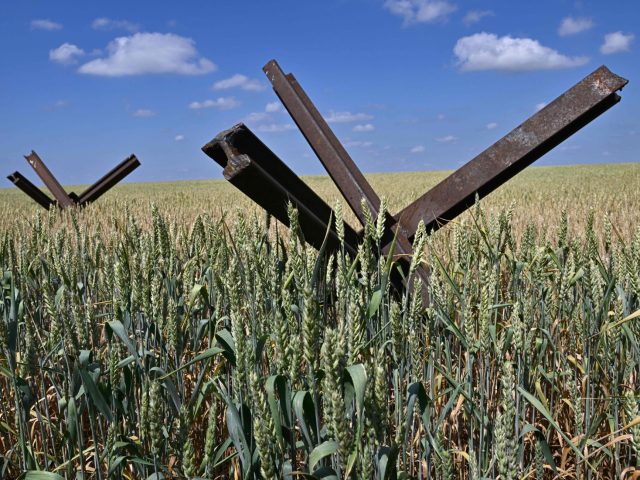Ukrainian farmers are reportedly preparing for a “hell” harvest season, with physical and financial dangers predicted to prevent them from reaping, transporting and selling their crops.
While food prices rise worldwide, reflecting growing shortages, farmers in one of the world’s largest food exporters are struggling to get their crops out of the country and into the hands of buyers, with Russia’s ongoing invasion of Ukraine endangering now endangering both their lives and their livelihoods during this “hell” harvest season.
Moscow has regularly been accused by talking heads in the west of trying to manufacture a global food crisis by preventing crops from leaving Ukraine, with tens of millions of tons of grain said to be stuck in the country.
According to a report by Euronews, this bad situation does not look like it will change anytime soon, with local farmers fighting to survive the current harvest season financially, let alone physically.
The broadcaster reports that many grain traders are reluctant to buy crops from farmers — being unable to guarantee that the produce won’t end up obliterated by an artillery shell or stolen — while equipment operators and suppliers are afraid of deploying their combine harvesters for fear of having their vehicles destroyed by mines or munitions.
To make matters worse, just as in other countries across the globe, rapid inflation is rendering the bottom lines of many farmers untenable, with the prices of fuel and fertiliser making it extremely difficult for farmers to continue operating.
“Fuel has gone up. Fertiliser prices are insane,” the broadcaster reports one local farmer as saying. “I don’t know how we are going to work next year.”
Even if crop growers are able to get their produce out of the ground and secure a buyer the difficulties don’t necessarily end there, with Ukraine struggling to ship its produce abroad.
Despite the world’s heavy reliance on the country’s agricultural produce, the presence of Russian forces in the Black Sea has rendered maritime export extremely difficult, while overland export largely remains financially unviable due to problems of scale and lack of infrastructure.
What’s more, some infrastructure needed for the export of produce by sea has been damaged by fighting, including the major Nika-Tera plant, which has been left unable to load or unload ships due to it being damaged by shelling.
State authorities are now reportedly looking to build new facilities near the Romanian border in the hopes of using river transport to start shifting the tens of millions of tons of grain stuck in the country.
Such a development cannot come fast enough for many in the developing world, with the World Food Programme announcing on Tuesday that it is cutting off nearly two million people in South Sudan from its services due to a lack of funding.
“It’s a drastic cut because it’s a third of the total of people that we know require food assistance, but we had to do a kind of triage, if you will,” a spokesman for the group told The Guardian.
“We had to decide who to keep assisting and who we can afford to suspend the assistance from – not because they’re not in need but because they can survive,” they continued, before noting that the food situation in the war-torn country will likely get worse as a result of a lack of supply from the U.N. linked organisation.

COMMENTS
Please let us know if you're having issues with commenting.